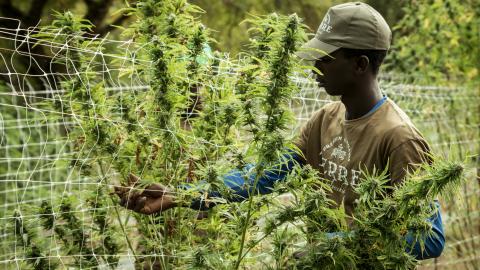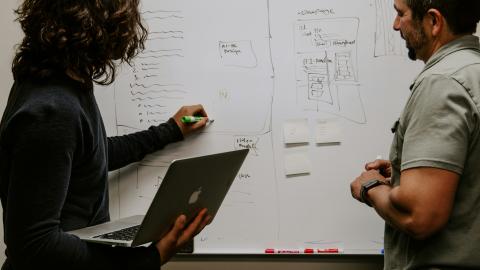
August 5, 2020
Each summer the Oregon Healthy Workforce Center at Oregon Health & Science University offers a Summer Institute in Occupational Health Psychology. This year's theme was "Building a Culture of Health, Safety, and Well-Being.” Below NWCOHS trainees reflect on their participation in this online event.
From Allyson O’Connor, PhD student, Occupational Health Services Research:
“I was interested in the OSHU Occupational Health Psychology Summer Institute to learn more about the NIOSH Total Worker Health (TWH) initiative, and I was grateful that the conference covered a wide variety of topics, many of which I have been immersed in while studying occupational health at UW for the past 5 years. The conference reinforced how much I have gained in my training at UW. Presentations at the Institute ranged from burnout, emotional labor, Microsoft's redesign of their workplace culture, integration of TWH into the workplace, and how businesses are responding to and shifting their safety cultures in response to COVID. “
“While the foundational principles of TWH are familiar to me, such as the effect of work stress and the workplace social environment on health, it was helpful to hear TWH presented in a way businesses or practitioners new to the concept could implement THW into their workplaces. This type of research translation into practice is a skill critical to my future career. Despite the online format of the conference, I am glad to have participated and learned from occupational health and safety professionals, researchers, and businesspeople implementing these concepts into their workplaces across the country.”
From Eunice Soh, PhD student, Occupational Health Nursing:
“This training compliments my overall UW/ERC training experience by giving exposure to the latest research and conversations being had in the field (practice and research). As such, this exposure informs the ways in which communication of knowledge can be best conveyed to challenge existing research paradigms and further the disciplines of occupational health and safety.”
“There was a definite shift in the language and content of the Summer Institute to recognize the current national social movements for equity. This shift was most evident in the panel discussions where most seemed comfortable in the awareness of the problem but not necessarily in how to address the system and structures in place that continue to oppress BIPOC workers in and outside academia.”
From Erica Chavez Santos, PhD student, Occupational Health Services Research:
“As someone who is aware of worker burnout, but not as familiar as I’d like to be, [Dr. Paul DeChant’s] presentation expanded my understanding.” Dr. DeChant explained that often people think worker burnout occurs when an individual is overworked, but in reality, it has more to do with the work environment.
“Working at a community health center prior to graduate school, I definitely observed workers being tired and overworked. There was sometimes a disconnect between administration and workers. Decisions that administration made did not include the input of workers being directly impacted by protocol or policy changes. Even though it was not on purpose, [these changes] it did not make clinic workers feel valued.” It was during this time Erica came to appreciate “how work conditions can impact individuals in more ways than just physically”.
“On Day 3, the highlight was the Total Worker Health 101 presentation by Liz Hill and Dede Montgomery. They [outlined] ways that employers and supervisors can create healthy work environments for employees, including asking employees what they need, increasing work autonomy and flexibility, and providing equitable wages and benefits. Lower wage workers are often service workers, janitorial workers, farmworkers, and others that are vital to keeping the country going. However, it is disheartening to hear that many of these workers do not get paid sick leave (always important, but especially relevant now in the COVID-19 pandemic) or paid a living wage.”
“I want to expand and broaden these same TWH ideas to be applied to everyone. If we are striving to create a more just and equitable world, we need to start examining how we treat some of the most integral workers in the US. It also becomes an issue of justice and representation, especially when we look at how many black, indigenous, people of color, and undocumented folks are working in lower wage industries. We have a lot of work to do but I’m hopeful we’ll get to where we need to be in order for everyone to work in a safe and equitable work environment.”
“I appreciate ERC for funding my participation in the conference. I’m grateful for the opportunity to learn from researchers doing great work in occupational health. Although it was a virtual conference, I felt engaged with the presenters and I plan to refer back to some of the presentations in my future work. “




